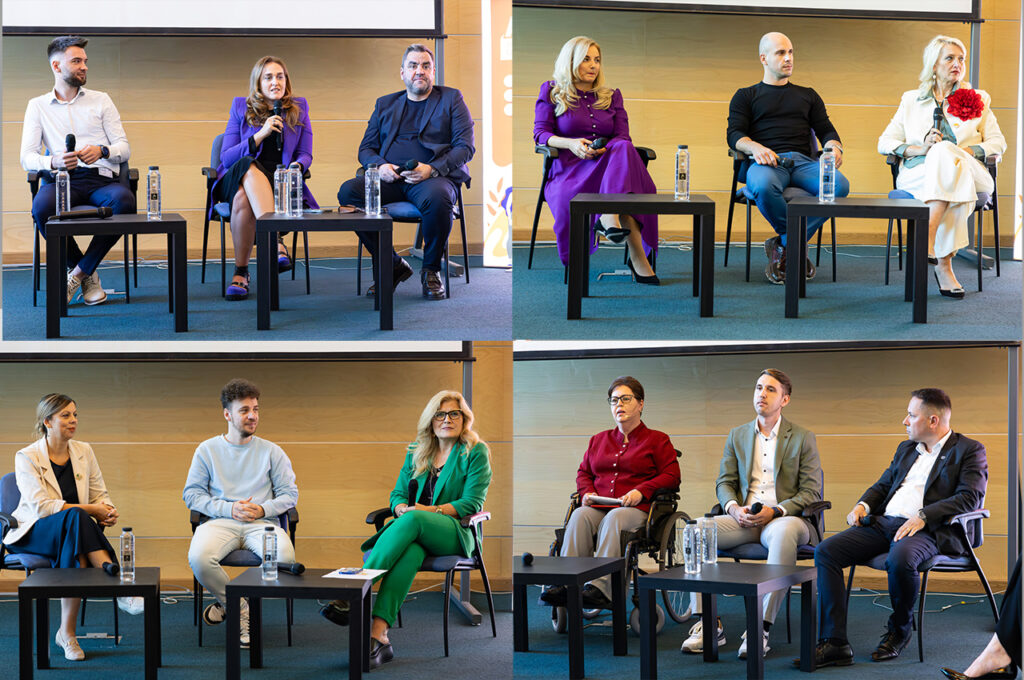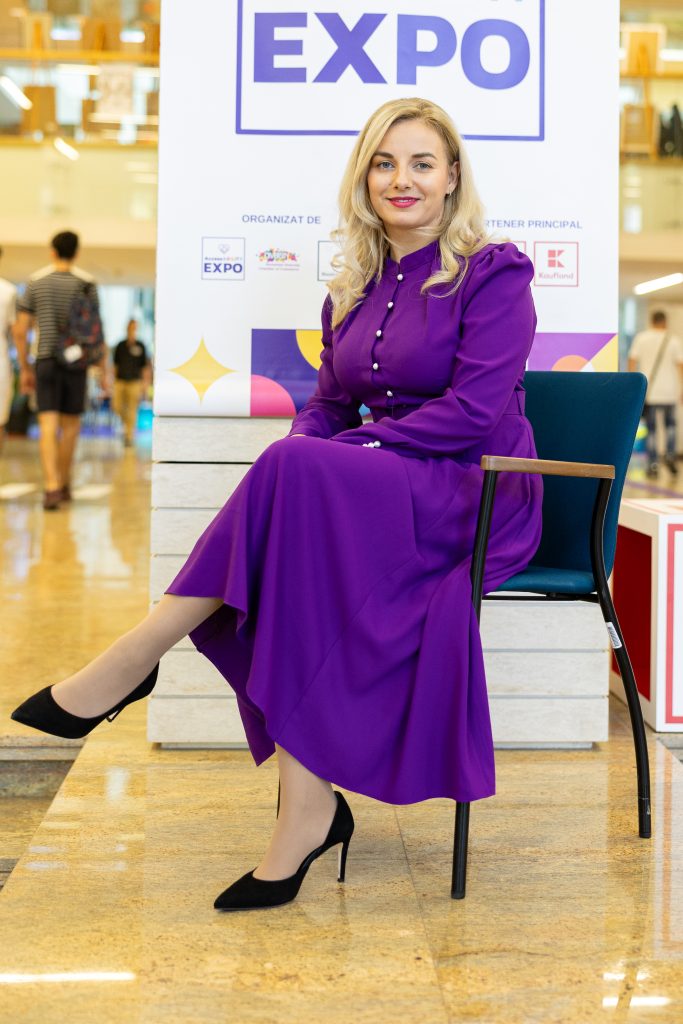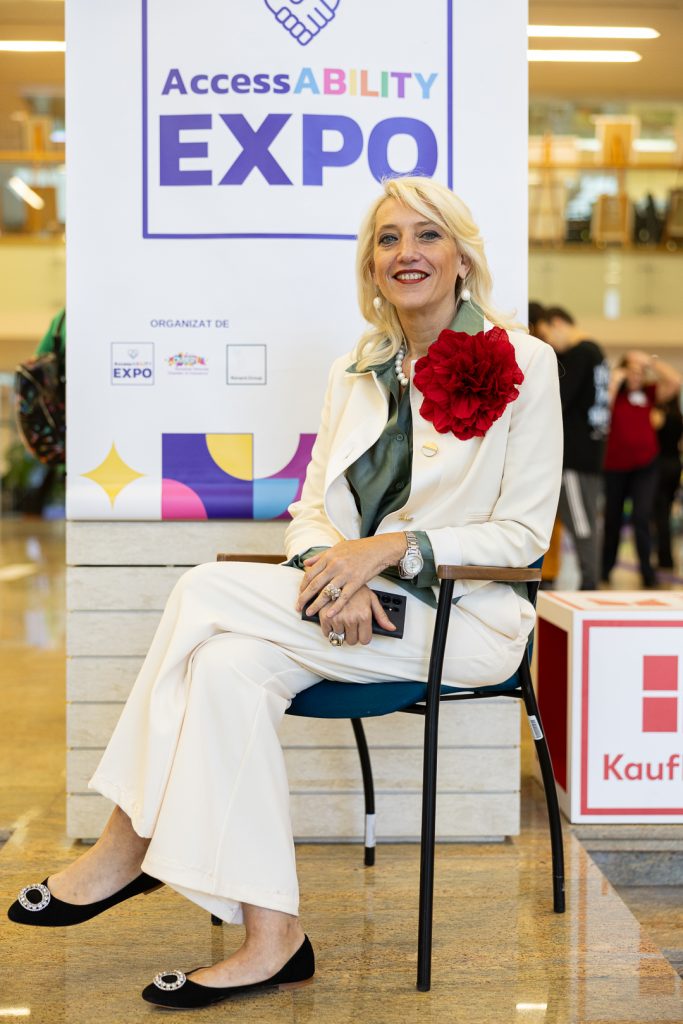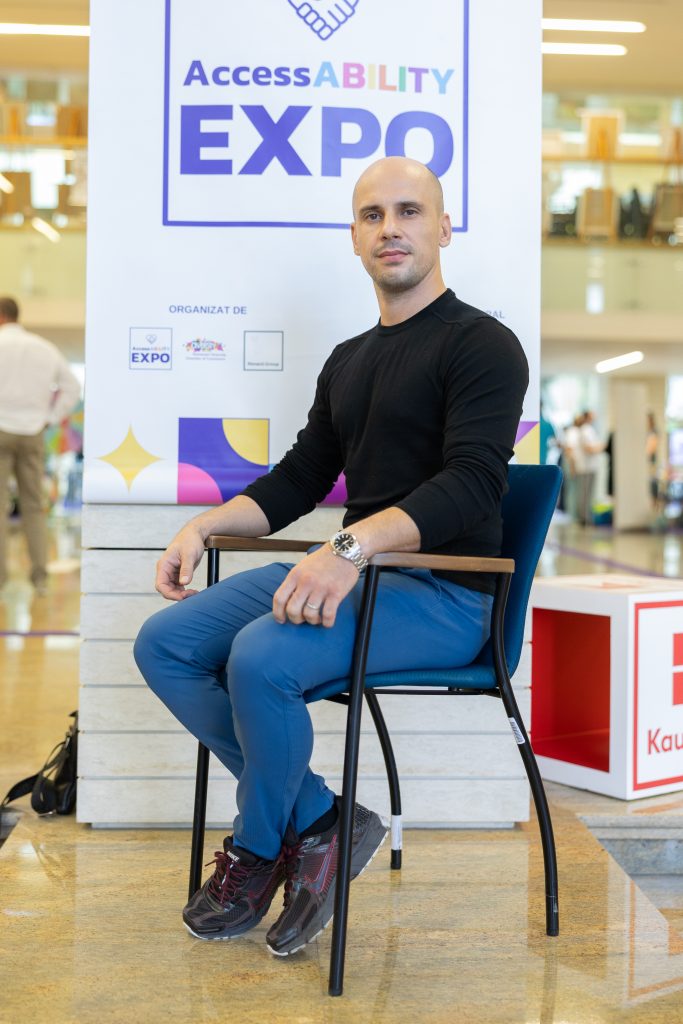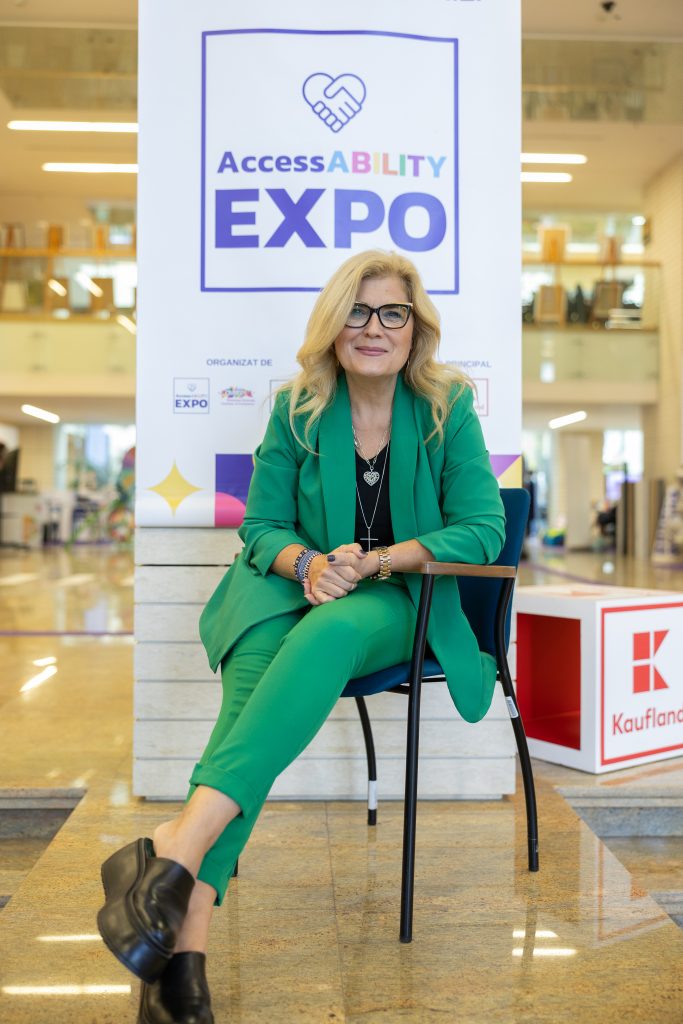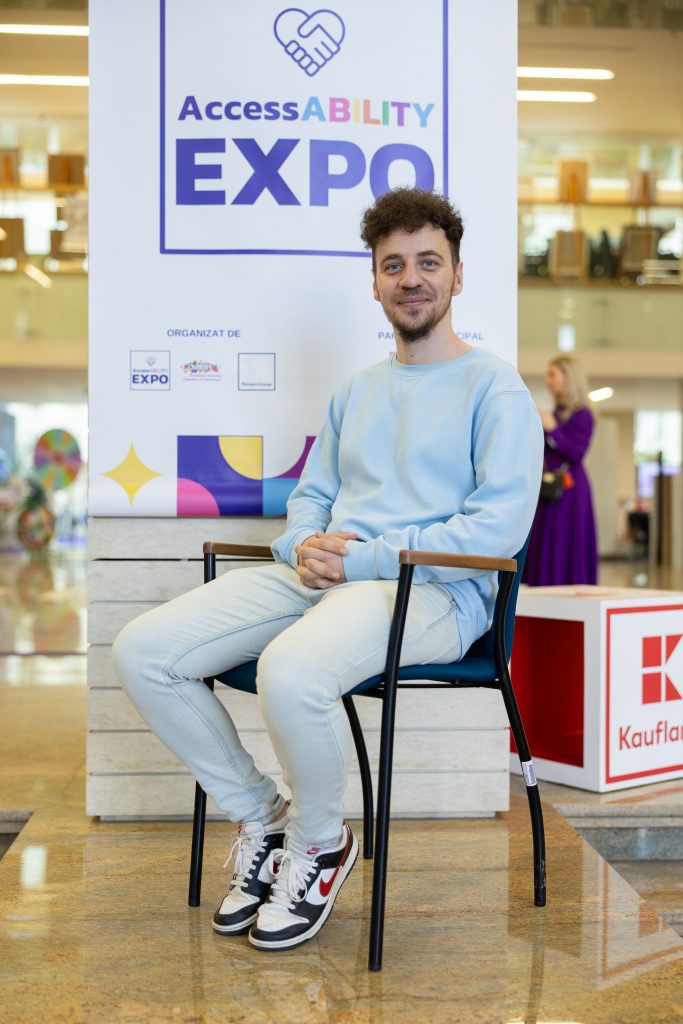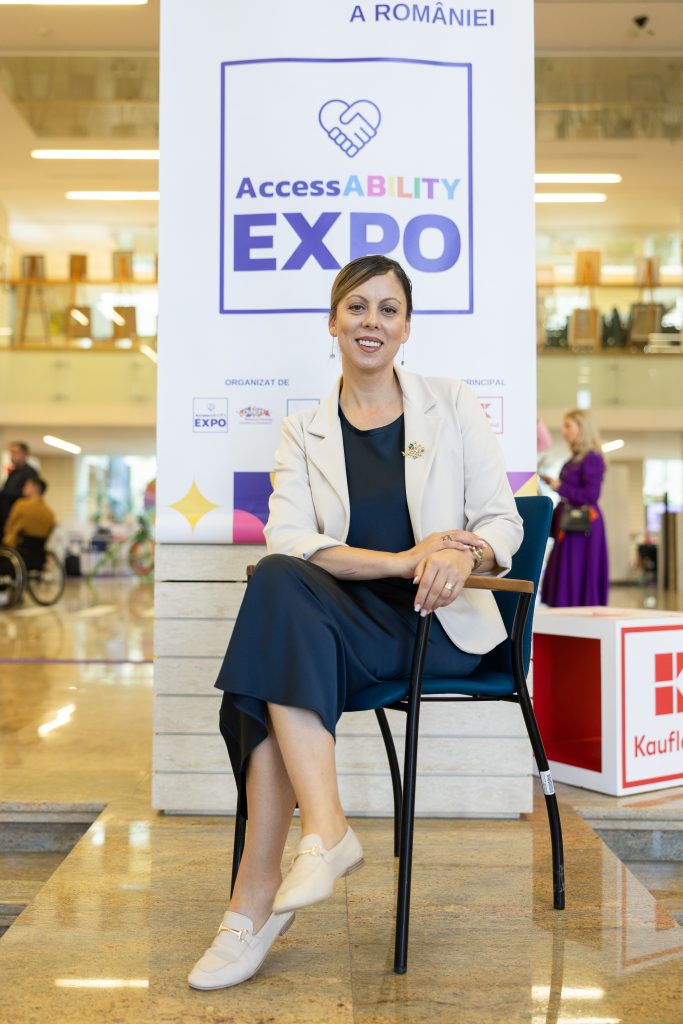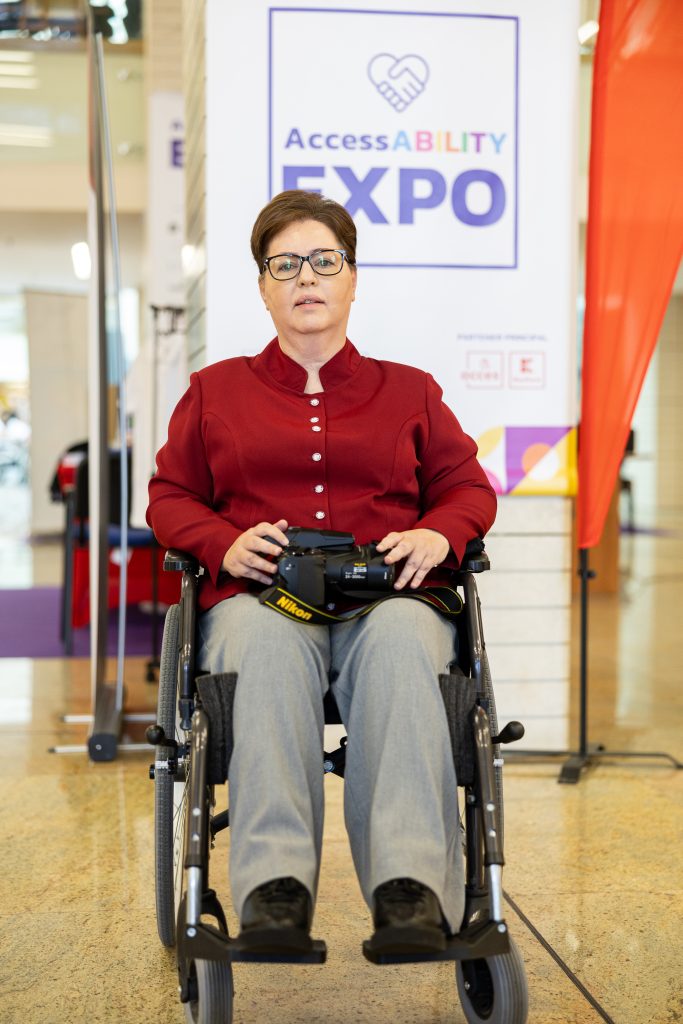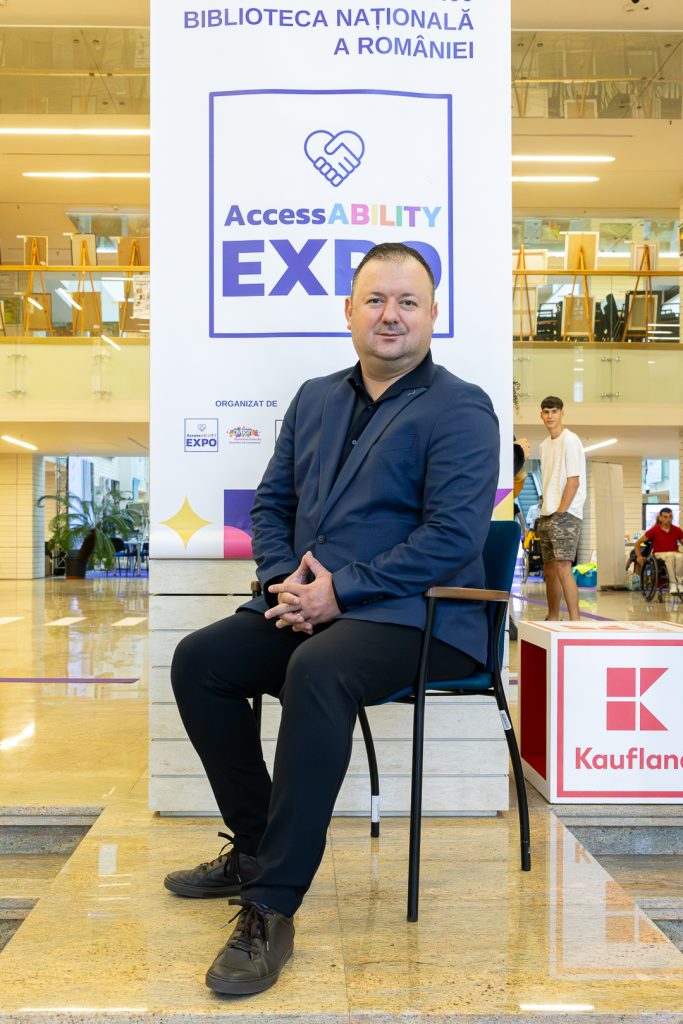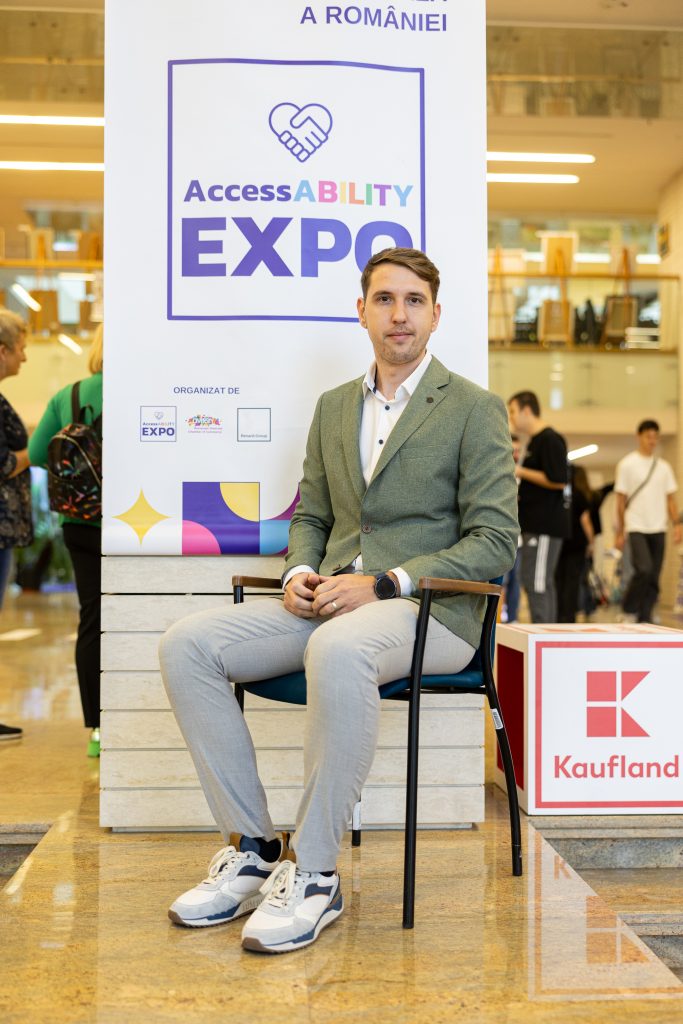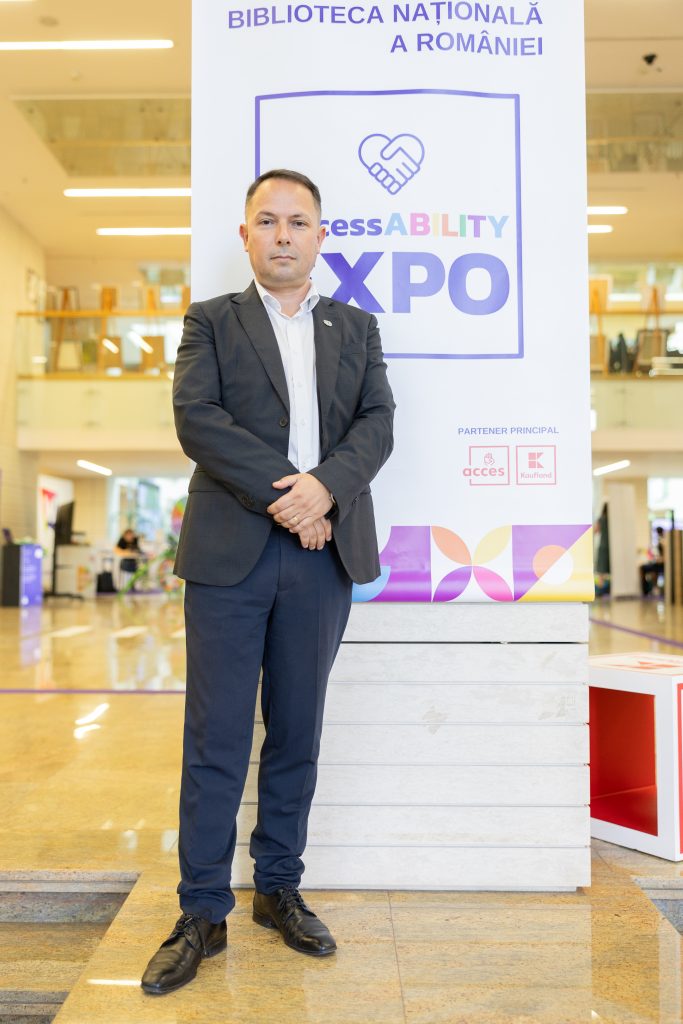There are over 900,000 people with disabilities in Romania, but only 5% are currently employed, a marker that Romania continues to need to improve the quality of life of its citizens. “Accessibility is as important as infrastructure for a country,” said Codrin Scutaru– CEO & Founder of Public Affairs Solutions, during the introduction of RAAD 2024, the third edition of the Romanian Accessibility Awareness Day took place during the inauguration of the first AccessABILITY Expo, organised by the Romanian Diversity Chamber of Commerce and London-based tech4good Renard Group, at the National Library of Romania in Bucharest.
Julien Chiappone-Lucchesi, the Head of Cooperation at the French Embassy/DG Institut Français de Roumanie noted the need for visibility when discussing accessibility and inclusion, highlighting the importance of events such as The Olympics and Paralympics. “These moments when figures, people, representatives, self-defining people are put in the media are very important to advance public policies,” he added. “It’s not in vain, it’s very important to organise such events, it’s very important to go public when you are engaged in those issues and topics because it can make a change.”
RAAD 2024 brought together 12 professionals in diversity and inclusion, HR, recruitment, talent management and employee networks who discussed the latest realities of accessibility in Romania such as the European Accessibility Act 2025 and shared strategies and best practices to overcome challenges in making accessibility integral to all businesses. Andreea Groenendijk-Deveau, London-based social entrepreneur and co-organiser of the AccessABILITY Expo, moderated the discussions. Find the highlights below:
RAAD 2024: 10 actionable insights
- Nothing about us, without us: ask people with disabilities and from vulnerable backgrounds what they need to achieve their potential in the workplace and society. Engage with them, listen to them and act on their feedback.
- Raise awareness about disability, neurodiversity and other vulnerable groups. Partner with NGOs or other companies to train everyone in your company to learn about disability and neurodivergence and how to interact with people with disabilities, neurodivergence or from vulnerable backgrounds.
- Digital accessibility starts with auditing your website to check it adheres to the European standards of accessibility
- Companies and individuals can use assistive technologies such as Voci pentru Mâini and Be My Eyes to better communicate with people with disabilities and include alternative text in all of their personal and professional online communication
- Leverage technology such as VR to deliver impactful awareness campaigns and training
- Diversity, inclusion and accessibility in business are achieved through small, consistent steps in a positive direction, not leaps and bounds.
- Leaders need to be involved in creating lasting change in company cultures, they need to uphold values that promote accessibility and inclusion
- Individuals, NGOs, businesses and authorities must collaborate, and exchange best practices and expertise to create an ecosystem that values, promotes and practically supports accessibility and inclusion in society and the workplace.
- Romania needs to have a vision beyond promoting the recruitment of more disabled people and those from vulnerable backgrounds; it needs to encourage them to engage in social entrepreneurship and establish start-ups.
- Create a tailored standard for accessibility that works for your teams and culture, there isn’t a one-size-fits-all approach to accessibility. Review your accessibility standards constantly they are an ongoing learning process for everyone involved.
Where there’s a will, there’s a way: creating accessibility is about being open to change, being empathetic and intentionally engaging with current and potential employees with disabilities
The first RAAD 2024 panel focused on discussing new technologies, best accessibility practices in business, and the European Accessibility Act 2025. In 2019, Kaufland “had the courage and audacity to create the A.C.C.E.S programme in a society that is not very inclusive”, says Ștefan Catalin SfeatcuProject Manager at Kaufland. The programme is dedicated to recruiting and empowering individuals with disabilities and improving accessibility throughout the company, from shops to offices. As of 2024, 450 people were employed and integrated into Kaufland’s workplace through this programme.
“Accessibility is achieved through small, consistent steps, not leaps and bounds”, reflects Estera Anghelescu Recruiting and Employer Branding Director at Kaufland. The programme’s success rests in the team’s openness to learning how to improve their services for people with disabilities and how to better engage with them in the workplace, their courage in facing and overcoming the fear of change and the support from the company’s leaders.
On the digital side, “an accessible website is not a technical challenge,” said Codrin Podaru, Country Manager at Accessi+ a company that aims to make it easier for people with disabilities to access the web and Kaufland’s partner in accessibility. Having an accessible website is not only a legal mandate as of next year as per the European Accessibility Act 2025 but also profitable for businesses. “The browse abandonment rate is 55% if the [website’s] flow is not accessible or not well designed”, Codrin said.
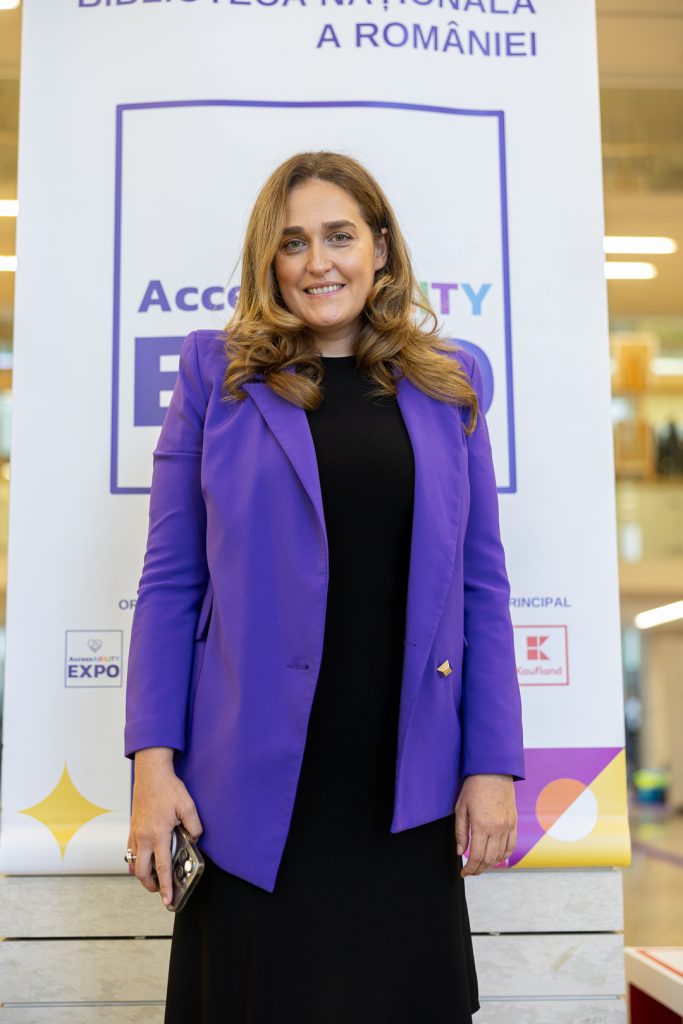
Estera Anghelescu
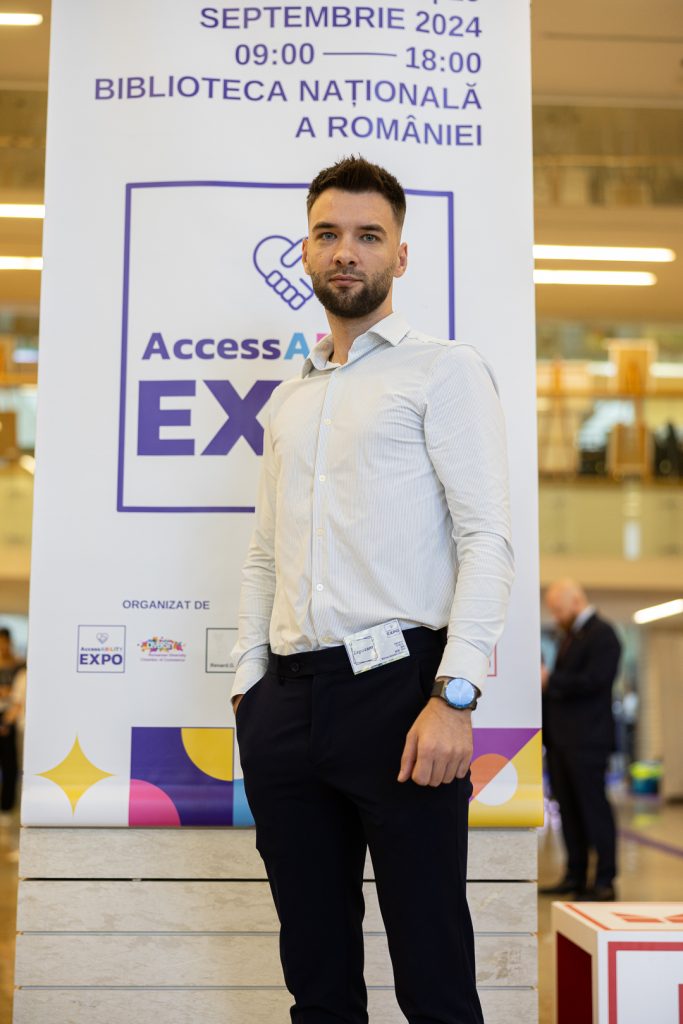
Codrin Podaru
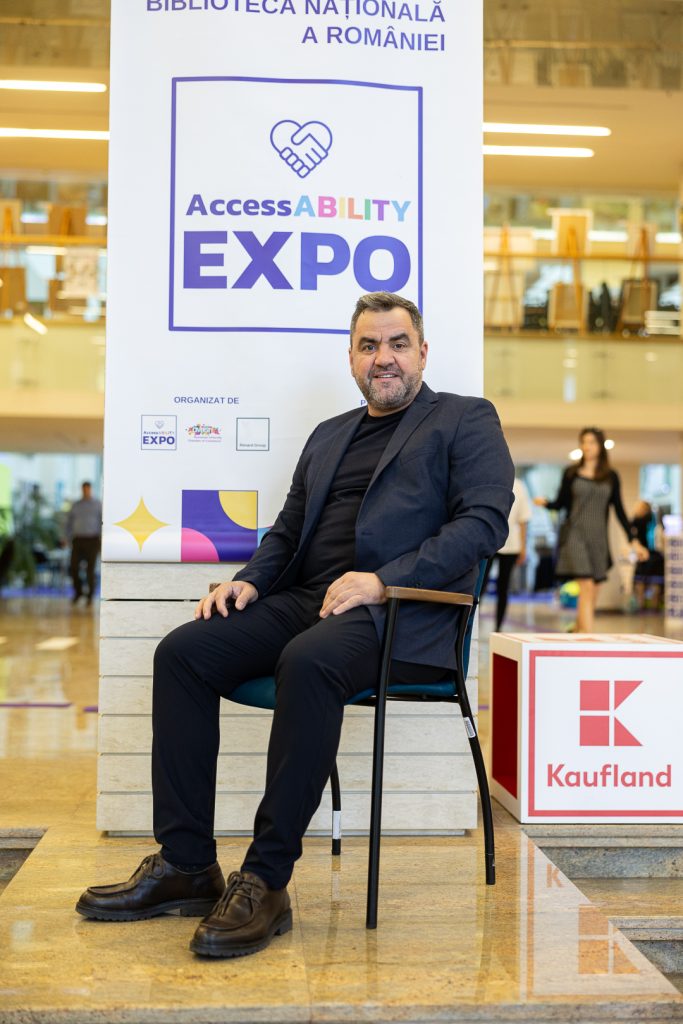
Ștefan Catalin Sfeatcu
Neurodivergence can be an asset to business and society, not a stigma
The second panel of RAAD 2024 explored self-advocacy, leadership, and support for neurodivergent employees. Lorenne Stefan, Member of the Disabilities Network Romania Team, HPE noted that understanding the characteristics of neurodivergence is vital to making the workplace more inclusive for neurodivergent employees. “In Romania, people still feel ashamed to be neurodivergent. Society should not marginalise them but work with them. They can be an asset to corporations, businesses or wherever they work,” she said.
Below are some of the best adjustments companies can make to be more inclusive to their neurodivergent employees or employees who have neurodivergent and/or disabled children:
- Allowing employees, especially those with sensory needs to use overhead headsets
- Creating lounges that give a state of comfort where employees can take breaks, which is often needed for employees with ADHD
- Providing multiple options for places to hold online meetings or calls
- Offering a tailored schedule, without insisting on working hours between 9 am and 6 pm just because the manager wants it that way. This is especially important for parents with neurodivergent children or children with disabilities who need a flexible schedule to accommodate taking them to therapy and medical visits, attending school with them until they get used to the environment and people around them, etc.
- Offering support groups on various topics such as mental and emotional health or specialized support for employees with neurodivergence.
Brad Palas, Engineering Manager at Google, adds in their interaction with people with neurodivergence companies “need to use their advantages and support their disadvantages – assign them jobs, positions, projects that are suitable to their advantages.”
“The biggest problem is that people don’t know, they don’t know what it means to be neurodivergent, which leads to fear,” said Adela Hanafi, President at Conil, a school specialised in helping children with disabilities and neurodivergence. “We need to raise awareness as much as possible. Neurotypical employees need to come in contact with neurodiverse employees and understand that they need more adjustments and a more flexible schedule.”
Collaboration between NGOs, businesses, and the Romanian authorities is essential for an inclusive future
The third panel of RAAD 2024 emphasised the importance of partnerships between the private and state sectors in fostering accessibility and inclusion. Angela Achitei, the CEO of Alaturi de Voi (ADV) Romania, a social enterprise promoting and developing the social economy, explains “Each organisation has created strategies that work in their ecosystem. We need to learn to look beyond the immediate impact on our organisation. How can we transpose our expertise in a set of laws, projects, strategies, and public policies? It’s very hard to find a communication channel.”
This view was echoed by Liana Stanciu Journalist and Radio Host at Radio Magic FM and spokesperson for Sansa la Viitor , an NGO helping prematurely-born children and their families. “I believe in the power of building something for the better. We need a very good link between associations and the state, a strong link with the authorities. In order to attract the attention of some authorities we have to become difficult to ignore. It is impossible to ignore a person, an organization, a group that consistently does something well.”
To foster collaboration and create lasting change, the state sector needs to understand and celebrate the value people with disabilities or those from a vulnerable background bring to society and business. Mihai Cepoi the Founder and CEO of Jobful, a company that helps companies rethink their recruitment processes, centring these on applicants’ top skills, said: “We employ abilities, not disabilities. People who go through different forms of hardships and difficulties are the best professionals. They are the ones who know how to overcome hardships and the ones that bring the most value to their organisations.”
Nothing about us without us: connect in meaningful ways with people with disabilities and involve them in decision-making
The fourth panel explored the importance of education and truly engaging people with disabilities in the decision-making processes of businesses and society. Daniela Tontsch President at Consiliul National al Dizabilitatii din Romania emphasised that “There’s no point consulting us if you don’t involve us.”
Tudor Scripor, the Inventor of Tactile Standardisation for the Blind, Scripor Alphabet shared his journey to developing an innovative way to communicate colour to those with visual impairments. On the importance of universal design, he added: “People with disabilities must be involved at every stage of product development, whether it’s a digital product or a physical one”. He warns that companies who do not take this approach will end up tinkering and fixing the product afterwards to make it accessible instead of creating something accessible from the beginning.
Raising awareness of these issues remains key. Florin Cirnaru, the Co-manager of Atelierul de Panza a company that is part of Viitor Plus, an NGO that puts inclusivity and the environment at the heart of its activity said, “We return to the same topic: education. We can’t do anything without education, no matter what subject we discuss.”
Ultimately, Daniela argues it is time for companies to take responsibility for ensuring accessibility and raising awareness:
As long as a company wants to have colleagues, and employees with disabilities there are no obstacles. There are many NGOs that can advise and help you with the logistics of this, people working in these organisations who can share their lived experience of having a disability and associations that can counsel you on recruitment. There just needs to be the will to make accessibility happen.

